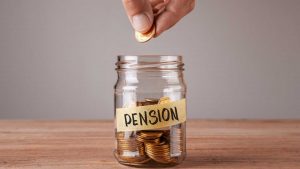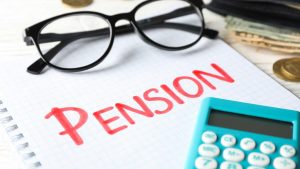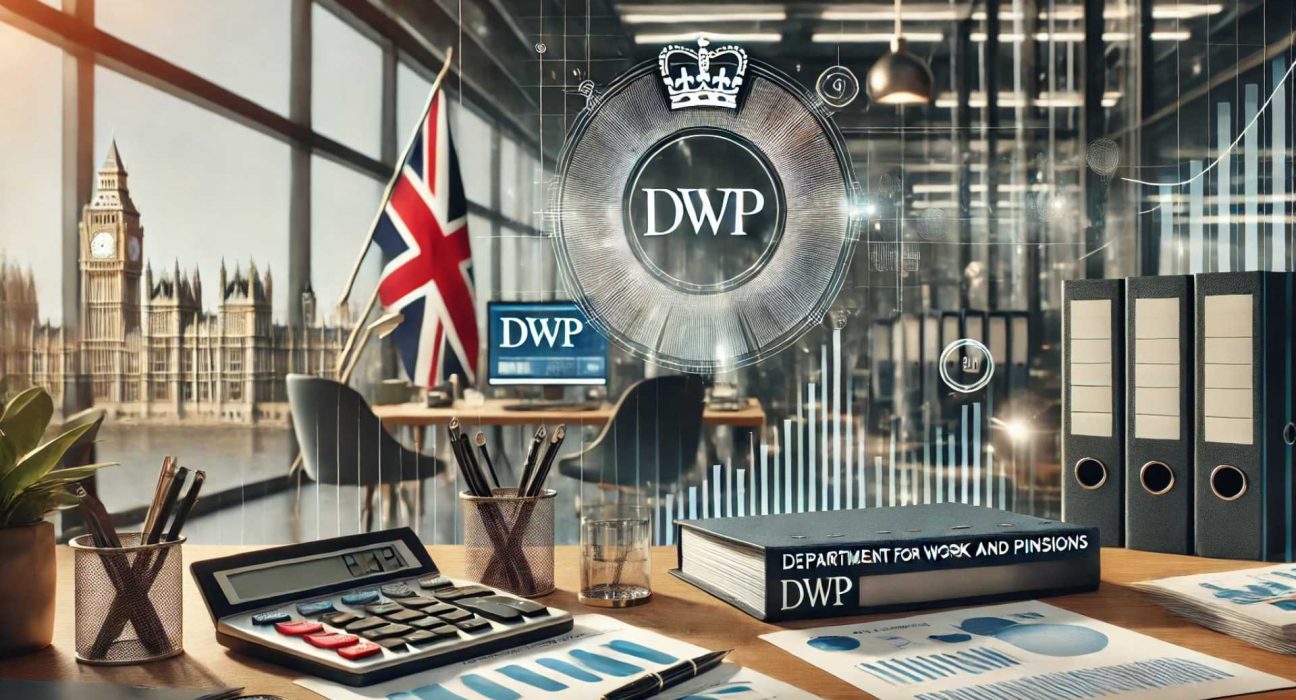The Department for Work and Pensions (DWP) plays a crucial role in managing welfare benefits across the UK, ensuring that individuals receive financial support based on their eligibility. To prevent fraudulent claims and ensure fair distribution of benefits, the DWP has the legal authority to check bank accounts and financial transactions of claimants.
Many people wonder how often the DWP checks bank accounts and what triggers these investigations. Understanding this process can help claimants stay compliant and avoid unexpected benefit reductions or legal action.
In this guide, we’ll explore how the DWP monitors bank accounts, what can trigger an investigation, and how claimants can ensure they follow the rules.
What is the DWP?

The Department for Work and Pensions (DWP) is the UK government body responsible for administering welfare benefits, pensions, and employment support programs. It plays a crucial role in ensuring that individuals receive the financial assistance they are entitled to.
The DWP manages key benefits, including
- Universal Credit : A monthly payment to help with living costs.
- Pension Credit : A top-up for low-income pensioners.
- Income Support: Financial help for those on a low income who are not required to look for work.
- Jobseeker’s Allowance (JSA): Support for unemployed individuals actively seeking work.
- Housing Benefit: Assistance with rent for eligible individuals and families.
To ensure benefits are fairly distributed and that claimants receive the correct entitlements, the DWP conducts regular financial assessments.
Why Does the DWP Check Bank Accounts?

The DWP conducts bank account checks to verify claimants’ financial situations and prevent fraudulent claims. These checks help ensure that claimants meet eligibility criteria and do not receive benefits they are not entitled to.
The Main Reasons for DWP Bank Account Checks
Preventing Benefit Fraud: Ensuring claimants do not receive payments through false declarations or financial misrepresentation.
Confirming Eligibility: Checking whether claimants have undeclared savings, passive income, or financial assets that could impact their entitlement.
Recovering Overpayments: Identifying cases where benefits have been paid incorrectly due to errors or misreported financial details.
While most claimants have nothing to worry about, those who fail to disclose their financial circumstances accurately may be flagged for investigation. The best way to avoid issues is by reporting all income and savings correctly to the DWP.
How Does the DWP Check Bank Accounts for Benefit Fraud?

The DWP does not have direct access to every claimant’s bank account at all times. Instead, it relies on data-sharing agreements, automated systems, and financial investigations to detect inconsistencies. These are the Methods Used by the DWP to Check Bank Accounts:
1. Data Matching with HMRC & Banks
The DWP collaborates with HM Revenue & Customs (HMRC), financial institutions, and local councils to cross-check financial information. If a claimant declares one amount of income to the DWP but a different amount to HMRC, this discrepancy may trigger an investigation.
2. Suspicious Activity Triggers
Certain financial red flags may alert the DWP to potential fraud. These include:
- Large cash deposits that are inconsistent with a claimant’s reported income.
- Frequent international transactions that suggest undeclared financial resources.
- Unusual spending patterns that do not align with declared earnings.
3. Fraud Investigations
If a tip-off is received or an anomaly is detected in financial records, the DWP may launch a formal fraud investigation. This can involve requesting bank statements, employment records, and even home visits to verify a claimant’s financial situation.
The DWP’s fraud detection system is not random but instead focuses on targeted investigations based on risk factors.
How Often Does the DWP Monitor Bank Accounts?

There is no fixed schedule for when the DWP checks bank accounts, as these checks are performed based on need and risk assessment. However, some claimants are more likely to have their accounts reviewed than others.
1. Routine Checks
The DWP regularly runs data matching processes with HMRC and banks to ensure financial records align with benefit claims. While not every claimant is checked individually, this automated system helps detect potential financial discrepancies.
2. Triggered Investigations
If a suspicious transaction is flagged such as an unexplained deposit or undeclared income the DWP may immediately investigate the claimant’s finances. These checks can be carried out without prior notice.
3. Annual Reviews
Claimants receiving means-tested benefits (such as Universal Credit, Income Support, or Housing Benefit) may have their financial circumstances reviewed annually. This helps ensure that income, savings, and living conditions remain within the eligibility criteria.
While most people will not experience frequent checks, those who fail to update their financial information may face unexpected investigations.
Can the DWP Check Your Bank Account Without Permission?

Yes, under certain conditions, the DWP can access a claimant’s bank account information without direct consent. This authority is granted under the Social Security Administration Act 1992, which allows government bodies to request financial records when fraud is suspected.
However, the DWP cannot freely browse personal bank accounts without justification. They must have a valid reason, such as:
- A discrepancy between declared income and bank records.
- A report from a third party suggesting undeclared savings or earnings.
- A compliance review initiated as part of a routine assessment.
Claimants are usually informed if their finances are under review, except in cases of covert fraud investigations, where notification might not be given.
What Triggers a DWP Bank Account Investigation?

A DWP investigation may be triggered by:
- Receiving large sums of money (inheritance, lottery winnings, etc.)
- Earnings not declared while claiming benefits.
- Holding multiple bank accounts with undeclared funds.
- Receiving an anonymous fraud report.
The severity of the investigation depends on whether the discrepancy was accidental or intentional.
How Far Back Can the DWP Check Bank Transactions?
The DWP typically reviews recent transactions (12–24 months) but can go back as far as six years in cases of fraud or overpayment disputes.
| Check Type | Timeframe Covered |
| Routine Compliance | 1–2 years |
| Suspicion of Fraud | Up to 6 years |
| Overpayment Disputes | Several years |
Keeping accurate financial records can help resolve any disputes quickly if an investigation occurs.
How Can You Ensure Compliance with DWP Bank Account Rules?

To avoid issues with benefit payments, claimants should:
- Report all income and savings accurately.
- Update financial details with the DWP regularly.
- Keep bank statements and financial records for reference.
- Seek professional advice if unsure about benefit rules.
Transparency reduces the risk of facing investigations and helps maintain eligibility for benefits.
What Are Your Rights If the DWP Investigates Your Finances?
Claimants have legal rights, including:
- The right to be informed (unless in a covert fraud investigation).
- The right to request evidence for why the check is being conducted.
- The right to appeal if they disagree with a decision.
- The right to legal advice if facing accusations of fraud.
Knowing these rights helps claimants respond appropriately to DWP investigations.
How Does the DWP Access Bank Account Information?

The DWP does not have direct access to an individual’s bank account at all times. However, under the Social Security Administration Act 1992, they have the legal right to request financial details from banks and building societies if there is a valid reason to suspect fraud or non-compliance.
Ways the DWP Accesses Bank Account Information
- Data Sharing Agreements: The DWP collaborates with HMRC, financial institutions, and local authorities to cross-check information and detect inconsistencies in income declarations.
- Targeted Investigations: If a claimant is flagged for a potential financial discrepancy, the DWP may request their bank records for further review.
- Court Orders: In cases of suspected serious fraud, the DWP can obtain a court order to access a claimant’s financial details directly from their bank.
Although the DWP cannot freely monitor all transactions in real time, they have the power to conduct retrospective checks when necessary. If a review is initiated, claimants will typically be informed, unless the investigation is part of a covert fraud operation.
What Happens If the DWP Finds Discrepancies in Your Bank Account?

If the DWP identifies inconsistencies in a claimant’s bank records, they will take further steps to review the case and determine whether benefits have been affected. The actions taken depend on the severity of the discrepancy and whether it was an honest mistake or intentional fraud.
Possible Outcomes of a DWP Bank Account Investigation
- Request for Further Information: The claimant may be asked to provide bank statements, pay slips, or additional financial documentation to explain the discrepancy.
- Benefit Adjustments or Reductions: If undeclared income or excess savings are found, the DWP may reduce or stop benefit payments to reflect the claimant’s actual financial situation.
- Overpayment Recovery: If benefits were paid incorrectly, the DWP may issue an overpayment notice and request repayment, which can be deducted from future benefits or recovered through a repayment plan.
- Fraud Investigation & Legal Action: If the DWP suspects deliberate fraud, they may escalate the case, leading to penalties, fines, or even prosecution in severe cases.
To avoid issues, it is essential for claimants to report all income, savings, and financial changes to the DWP as soon as they occur.
How Can You Appeal a DWP Decision on Bank Account Checks?

If a claimant disagrees with a decision made by the DWP such as a reduction in benefits, an overpayment demand, or a fraud allegation they have the right to appeal the decision through a formal process.
Steps to Appeal a DWP Decision
- Request a Mandatory Reconsideration: Within one month of receiving the decision, claimants can ask the DWP to review the case and reconsider the outcome.
- Provide Additional Evidence: Claimants should submit any relevant financial documents, bank statements, or supporting evidence to explain discrepancies.
- Take the Case to a Tribunal: If the Mandatory Reconsideration does not result in a favourable outcome, claimants can appeal to an independent tribunal, which will assess the case fairly.
- Seek Legal Advice: If facing serious allegations, claimants can consult a welfare rights advisor, solicitor, or Citizens Advice Bureau for guidance.
Appealing a decision can take time, but claimants should not ignore any DWP correspondence and should act quickly to protect their rights.
Conclusion
The DWP checks bank accounts to ensure fair benefit distribution, prevent fraud, and recover overpayments when necessary. While not all claimants are monitored regularly, financial discrepancies can trigger investigations. Keeping accurate financial records and reporting changes in income or savings can help avoid issues with benefit claims.
If faced with a DWP inquiry or decision, claimants have the right to appeal and provide supporting evidence. Understanding the rules and staying compliant ensures continued access to benefits without unnecessary complications.
FAQs About DWP Checking Bank Accounts
Can the DWP see my bank account balance?
The DWP can request bank balance details if fraud is suspected, but they do not have real-time access.
Do all benefit claimants get their bank accounts checked?
No, only flagged cases undergo detailed reviews.
Will the DWP notify me before checking my bank account?
In most cases, yes, but covert fraud investigations may proceed without notification.
Can the DWP investigate my bank account without informing me?
Yes, in cases of suspected fraud, the DWP can conduct covert investigations without notifying the claimant.
Will having multiple bank accounts affect my benefits?
No, but if the total savings across all accounts exceed the benefit threshold, it may impact eligibility.
Can the DWP check joint bank accounts?
Yes, if a claimant has a joint account, the DWP can review it to assess their share of the funds.
How long does a DWP bank account investigation take?
The duration varies, but most investigations take between a few weeks to several months, depending on complexity.









Leave feedback about this